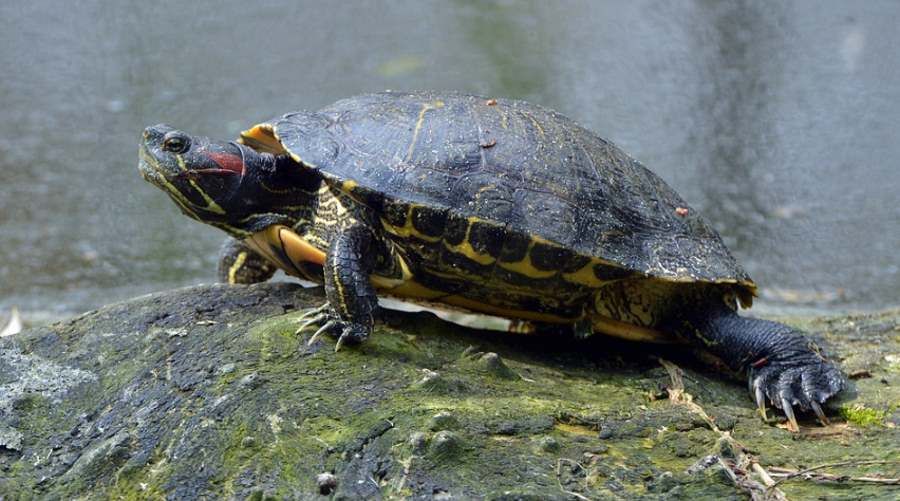Experts: invasive species must be fought before they spread
Invasive animal species most often end up in the environment released by humans. They need to be fought before they spread – that’s why it’s important to create refuges where such animals could live without causing damage, experts say.
To date, almost two thousand species have been identified in Polandow of foreign origin – that is, speciesoin plants and animals, whichore have not been found in our country in the wayob natural, but as a result of human activity. Most of them are not in any wayob harmful – they do not adversely affect nature, the economy or human health. Some of them we can’t even imagine life without today: plants such as potatoes, or animals such as chickens or pigs, are foreign species in most parts of the world.
– There is, however, a small group of speciesoin whichosuch impacts are very strong: it is precisely these species of animals and plants that we call invasive alien species,” explains Dr. Wojciech Solarz of the Institute of Nature Protection of the Polish Academy of Sciences in Krakow in an interview with PAP.
Alien species can enter new territories intermittentlyoway: according to data collected by the European Commission, there are approx. 40 such opportunitiesow. Species can move to new areas after a natural geographic barrier is removed (e.g., the. built canal), get out of breeding or cultivation under controlled conditions – or be brought into the new country along with imported goods.
– Fortunately, there is no longer such an ideaow as it was still the case in the 19th and early 20th centuries: importing foreign speciesoin animals and deliberately inbreeding them into the environment, for example, to make it pretty or to increase the number of species ofoin – says Dr. Solarz.
As the researcher explains, exotic animal species most often find their way into the environment today released by their current owners. – Many of the potentially invasive speciesoin – whichorich may not yet be in the wild in Poland, but they are on the EU list of speciesoin banned – is brought into the country for breeding purposes. They then escape their owners or are just released by them – mowi.
An example of such a widespread species in Poland, for example, is the American-origin chewored-footed lionfish. Once released into the wild, they become competitors for our native ¿omudpuppies: they compete with them for food and resting places, and they can also transmit to the wildomud parasites and diseases.
However, Dr. Solarz argues that, counterintuitively, it is not the most common invasive animal and plant species that should be the focus of our attention. – Due to the fact that they are so widespread, we are unfortunately unable to do much about them. In the case of such widely distributed speciesoInvasive species we can only prob to limit their occurrence and negative impact in specific locations – e.g. on naturally valuable areas, such as national parks or Natura 2000 areas. While on the scale of Poland as a whole this is not feasible – zaroreasonoIn technical as well as economic terms,” adds the expert.
– So we should really focus our activities on species thatore are still rare and not widespread enough that there is a chance to manage them in such a way that it would have an effect on the whole country – states.
The key, therefore, is to keep under control the number of species already present in Polandoin exotic. One of the most fundamental waysoin conducting this control is precisely to prevent the release of these animals into the wild.
Andrzej Kepel of the Polish Society for Nature Protection "Salamander" points out, however, that in Poland it is practically impossible to responsibly dispose of live specimenoIn speciesoin exotic.
– The only reasonable solution would be to create asylums, whichore would be able to accept these animals,” he states. He notes that while from an economic point of view it seems most efficient to put animals to sleep – but adopting such a strategy would most likely be counterproductive. – No owner of an animal, even if he or she is currently not very interested in it and is tired of keeping it, would give it up to die. The knowledge that they would be euthanized would de facto result in such animals not going to the point ofoin whichore could take them in, they would only be released into the wild,” he explains.
– If we want people whooers are no longer willing or able to keep such animals, they have given them away – we need to create places where theorych they will be provided with good living conditions until their natural death – mowi Kepel.
At the same time, he adds that although programs were being prepared, ktore were to remedy the problem of releasing exotic animals into the environment, their implementation each time faces a financial barrier. – NGOs would be able to do it – but they too would have to have guaranteed resources – stresses.
